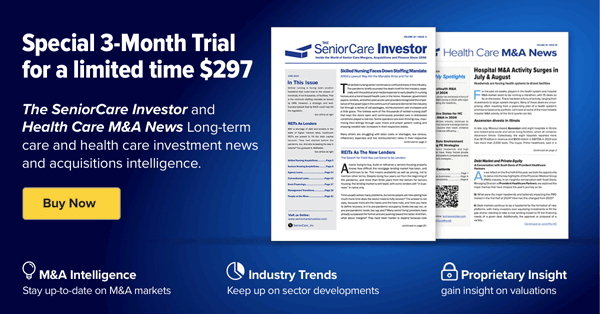UnitedHealth Group Incorporated (NYSE: UNH), one of the largest health insurers in the United States, reported its second quarter financial results on Friday, July 14.
When we covered UnitedHealth Group during the last earnings season, the company demonstrated positive performance and balanced growth across its Optum and UnitedHealthcare business segments. This trend seems to have persisted into Q2, with UnitedHealth Group continuing to report strong contributions from both segments, even as UnitedHealth continued to invest to support growth.
During Q2:23, UnitedHealth reported group revenues of $92.9 billion, up 15.6% year-over-year and surpassing analysts’ estimates of $91 billion. UnitedHealth reported Q2:23 earnings from operations of $8.1 billion, a 13% increase over the previous year’s second quarter. Optum’s revenues grew 24.8% to $56.3 billion, with operating earnings increasing 13% to $3.7 billion.
UnitedHealthcare, which provides insurance coverage and benefits services to more than 50 million people, reported second-quarter revenues of $70.2 billion, a 13% increase over Q2:22.
During the earnings call, UnitedHealth’s executives highlighted a number of significant challenges the company has had to deal with, including provider workforce shortages and drug costs, which have plagued the healthcare system in the wake of COVID-19. The company reported a medical cost ratio – the percentage of payout on claims compared with premiums – of 83.2%, up almost 2% from the same period a year ago. According to UnitedHealth Care, the increase was driven by a surge in demand for elective surgeries and outpatient care activity, primarily among seniors.
“To illustrate, in the second quarter, outpatient care activity among seniors was a few hundred basis points above our expectations,” UnitedHealth Group CFO John Rex said during the July 14 earnings call.
UnitedHealthcare has responded proactively to concerns by expanding its Optum network to enhance accessibility to healthcare services for a wider population. The company has also been pursuing the utilization of biosimilars, which are cost-effective alternatives to expensive biological drugs.
The adoption of biosimilars reflects a growing trend in the healthcare industry. Just a day before UnitedHealth’s earnings call, Cigna Healthcare (NYSE: CI) announced that it added four Humira biosimilars to its formularies, aiming to increase member access to affordable treatments. Like UnitedHealth, Cigna’s executives emphasized the positive impact of biosimilars on patient outcomes while reducing healthcare expenses. The convergence of these two prominent healthcare organizations underscores the growing recognition and acceptance of biosimilars in the healthcare field as an effective solution for delivering quality care while mitigating financial burdens.
UnitedHealth had a rather productive quarter on the M&A front, especially in its Optum segment, with two deals announced during Q2:23. The company kicked off the quarter with the acquisition of Crystal Run Healthcare by Optum, reinforcing its commitment to value-based care. Optum has been a key growth area for the healthcare giant, announcing five acquisitions in 2022 alone.
Optum followed that up with the acquisition of home health and hospice provider Amedisys, Inc. for $101 per share, valuing Amedisys at approximately $3.7 billion. Amedisys’ annual revenue for 2022 was $2.1 billion. Option Care Health previously bid for Amedisys in May 2023, but Optum sent an unsolicited bid soon after, ultimately winning out. Amedisys offers home health care, provisional medical staffing and primary care in rural areas and outpatient surgery services.
The market has responded positively to UnitedHealth’s earnings performance. Last quarter, despite positive growth on earnings and revenues, investors were concerned over two significant revenue drivers for UnitedHealth – the declining margins of Optum Health and the potential threat to United’s Medicare Advantage business due to the Centers for Medicaid and Medicare Services pushing back against perceived profiteering. Today, investors are much more optimistic as UnitedHealth seems to be answering some of their concerns.
“I’m super pleased with the performance of OptumHealth overall, and when you look at the growth of that business and particularly the expansion of the number of patients who are now looking after in value-based arrangements now about 4 million folks, but not just from [UnitedHealthcare], but of course, from many other payers as well, really strong validation of the model that we’ve been building, and you can continue to see us extend that.” said Andrew Witty, CEO of UnitedHealth Group.
UnitedHealth’s stock price jumped Friday after the company’s Q2:23 financial results topped Wall Street’s expectations. The healthcare conglomerate’s shares opened on July 14 at $462.55, and finished the day at $480.35, significantly higher than the previous closing price of $448.30.


